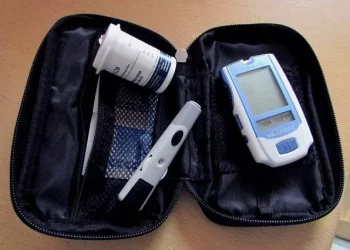Women possess a biological advantage in burning fat more effectively than men, significantly lowering their risk of developing type 2 diabetes, according to a groundbreaking study by Sweden’s Karolinska Institutet.
Despite generally carrying a higher percentage of body fat, women are statistically less prone to metabolic diseases like type 2 diabetes. Researchers attribute this to a superior fat breakdown process, known as lipolysis, which plays a pivotal role in regulating energy balance and preventing metabolic disorders.
“Lipolysis, the process by which lipids stored in fat cells are broken down, is essential for energy regulation. When this mechanism is efficiently activated, it serves as a protective factor against metabolic diseases,” said Professor Peter Arner, lead author of the study.
The research, conducted by Professor Arner in collaboration with Dr. Daniel P. Andersson of Karolinska University Hospital Huddinge, analyzed abdominal subcutaneous fat cells from both men and women. When these cells were subjected to catecholamines — hormones responsible for stimulating fat breakdown — notable gender differences emerged.
“Although women’s fat cells initially required stronger hormonal signals to trigger lipolysis, once activated, the rate of fat breakdown in female cells surpassed that of males,” Arner explained.
This enhanced fat-burning capability in women becomes particularly pronounced during physical exertion or periods of metabolic stress. The study’s authors suggest that this efficiency could be a key factor in the comparatively lower incidence of obesity-related diseases among women.
Beyond its scientific insights, the study holds promising implications for future treatments. Researchers envision gender-specific therapies that leverage these biological differences to better manage and prevent type 2 diabetes, especially among overweight and obese men.
“Our findings highlight the potential for developing targeted treatments that address the unique metabolic profiles of men and women,” Arner concluded.
Related topics:
Study Connects Ultra-Processed Foods to Increased Diabetes Risk and Mortality Rates
Experts Recommend Plant-Based Diets to Combat Fatty Liver and Diabetes Crisis in India
Tirzepatide Surpasses Semaglutide in Treating Type 2 Diabetes, Kidney Disease, and Heart Failure


























